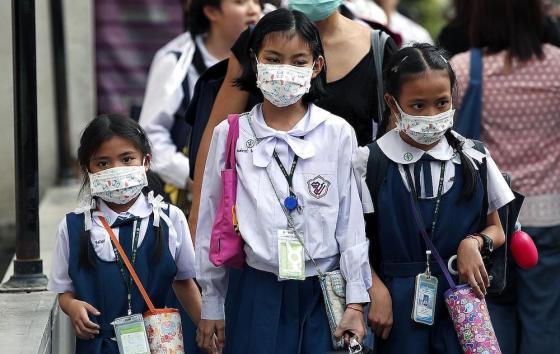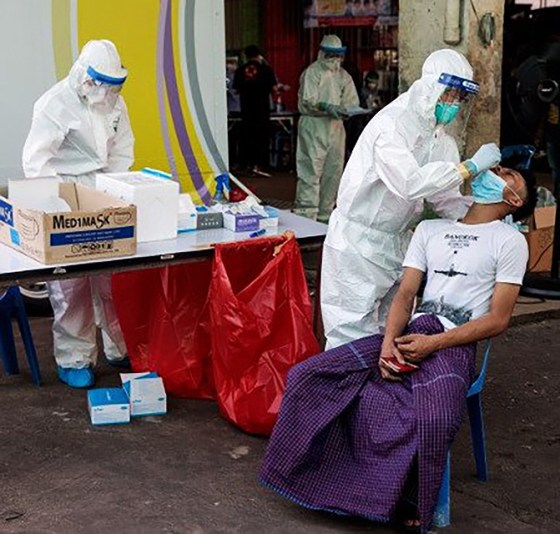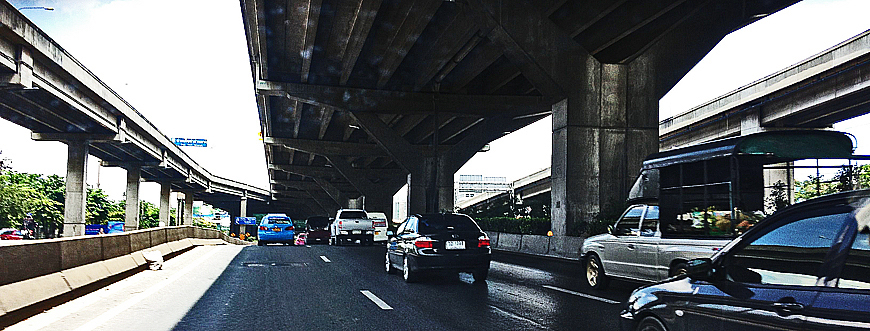 POSTCARD#411: Bangkok: Ajahn Sucitto continues with an analysis of Khanti [patience], number six in the Ten Perfections, and draws attention to some interesting aspects of our everyday lives that may have gone unnoticed. Looking as well, at the strategies that are needed to find a way out of Suffering [Dukkha] through Patience [Khanti].
POSTCARD#411: Bangkok: Ajahn Sucitto continues with an analysis of Khanti [patience], number six in the Ten Perfections, and draws attention to some interesting aspects of our everyday lives that may have gone unnoticed. Looking as well, at the strategies that are needed to find a way out of Suffering [Dukkha] through Patience [Khanti].
The Buddha spoke of the restraint of holding the heart still in the presence of its suffering until it lets go of the ways in which it creates that suffering. That is, the mind/heart (citta) habitually creates suffering and stress through reacting to, holding onto or getting caught up with what life throws at us. All the perfections contribute to the lessening or dismantling of that Dukkha, but the specific quality of Khanti is to carry the heart through the turbulence of existence so that it no longer shakes, sinks or lashes out.
So when you’re stuck in a traffic jam, anxious for resolution to a crisis or beset with a migraine, it’s good to remember that the Buddha was here too and found a way through.
Acceptance Without Expectation
Patience has the gut-knowledge that recognizes that a problem or a pain is not something to run away from, get flustered by or be self-pitying about. It has the wisdom to know that we have to prioritize the steps through which we can resolve suffering. There may be any number of ways to arrive at the destination, but the first thing to do is to not react – to not rage, despair or get caught in mental proliferation.
Draw a line around the suffering, take a step back and know ‘that’s that.’ Recollect that we can be free of the suffering: that we can let go; we don’t have to take suffering in and adopt it as final, real and solid. Patience holds us present with the suffering in a spacious way, encouraging the mind to open. In its perfection, patience means giving up any kind of deadline, so the mind is serene and equanimous. But if the patience isn’t pure yet (and it takes time to develop patience!), the mind still feels pushy or defensive. Impure patience is the attitude: ‘Just hold on and eventually things will get better; I’ll get my own way in the end if I’m patient enough.’ This approach can temporarily block or blunt the edge of suffering, but it doesn’t deal with the resistance or the desire that is suffering’s root.
Pure patience is the kind of acceptance that acknowledges the presence of something without adding anything to it or covering it up. It is supported by the insight that when one’s mind stops fidgeting, whining and blaming, then suffering can be understood. Reactivity isn’t the truth of the mind; it’s a conditioned reflex, and it’s not self. Because of that, suffering can be undone, and when it is, the mind is free.
Therefore, all conditioned reflexes have to be understood as unreliable and dependent on causes and conditions. They’re not to be adopted as real and solid. Yet they do happen: holding on, expecting things to be satisfying or feeling cheated are immature responses. In order to undo these attitudes we must first be patient with them. The practice does urge us to stay with it and this requires us to grow stronger and broader rather than hide or run away. The process of bearing with the suffering is not a punishment but a voyage of growth.
The suffering that can be relinquished arises dependent on causes and conditions: on attitudes and assumptions that things should go our way, that life should be comfortable, and that society should be fair and peaceful. We look for conditioned phenomena to be satisfying, conclusive, reasonable, productive and so on. But taken as a whole over a period of time, they aren’t. So we cause ourselves and others suffering when we expect them to be so.
We can organize and create supportive conditions such as health and education and laws, but those conditions have to be constructed and maintained, they’re not a given norm. And suffering doesn’t abate: anxiety and depression are now the number one disease of the developed world. Here we find the widespread pain of being driven to attain material goals that are never fulfilled or fulfilling, and the anxiety of competitive pressure and loneliness.
(Continued 19 march 2021)










You must be logged in to post a comment.